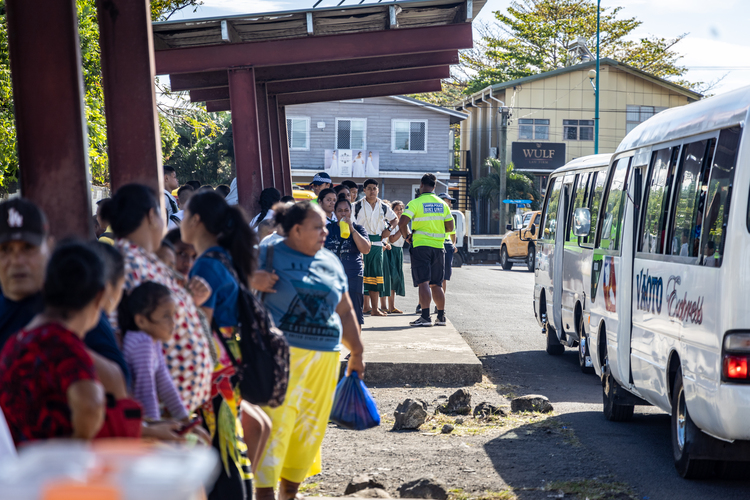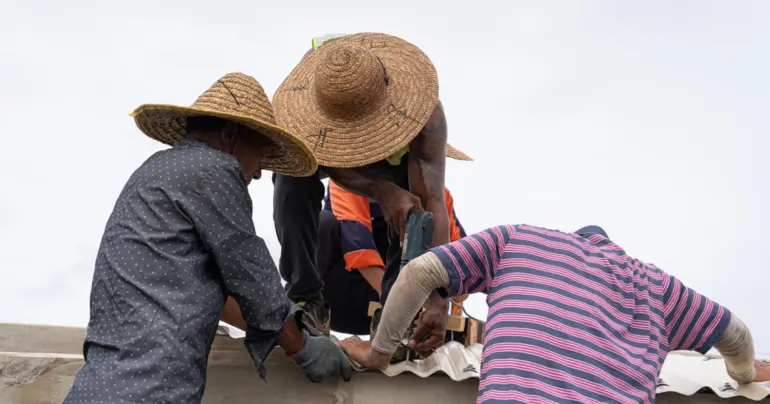School brawls, a culture which we turn a blind eye to
There is a culture of violence that is being allowed to breed in our society and instead of ensuring that we stop it, most are turning a blind eye and accepting it as a normal thing.
On Friday, there was a brawl among two schools at the Fugalei market. This is not the first time this has happened and by the way things are being handled, it does not seem like it is the last time.
Six students were taken into Police custody on Friday following the brawl linked to two tertiary education institutions.
The clash at the Fugalei market after school hours was between students from Maluafou and Avele colleges and was triggered by social media exchanges.
In an interview with the Samoa Observer on Saturday, the Police Commissioner said the six students were later released on the same day after they were given warnings in the presence of their parents at the Police headquarters.
"It wasn't a big fight, it started from their differences on social media, which was started by two to four students then they took it from there but we took in six students but they were later released with a warning and we even called the parents too," said Auapa'au.
The Police acted fast in rounding up the students and then instead of charging them, they were let off with just a slap on the wrist. If an example is to be set, whoever is involved in such incidents needs to be charged.
This brawl started from exchanges on social media, there are others which have happened in the past because of boys fighting over girls or vice versa and then there is the sports rivalry. In all such cases, the culprits have been let off with a slap on the wrist.
There are two lessons to be learnt here. The first one is that we should not be condoning any form of violence. This is reflective of the brawling culture that we have so gotten used to. It has happened in the past and continues to happen as if we have accepted this to be a norm.
This type of behaviour plainly reflects what we are teaching the children at home, in our villages and in churches. Now you will argue that no home, village or church teaches children such behaviour. Perhaps we are not teaching children deterrence and educating them about violence and its consequences.
Perhaps this is also the reason why more than 60 per cent of Samoan women are subjected to some form of violence in their lifetime.
School violence is traumatic and can cause considerable psychological distress. Traumatic experiences can be difficult for adults too; however, when someone whose brain is not fully developed yet experiences trauma, especially if it’s over a long time, their brain can switch to survival mode, which can affect their attention, concentration, emotional control, and long-term health.
According to a 2019 study, children who have experienced school violence are at risk for long-term mental and physical health conditions, including attachment disorders, substance abuse, obesity, diabetes, cancer, heart disease, and respiratory conditions
Children who witness school violence may feel guilty about seeing it and being too afraid to stop it. They may also feel threatened, and their brain may react in a similar way to a child who has faced school violence.
Additionally, when children experience or witness trauma, their basic beliefs about life and other people are often changed. They no longer believe that the world is safe, which can be damaging to their mental health.
For a child to be able to take care of themselves as they get older, they need to first feel safe and cared for. Learning to cope with threats is an advanced lesson that has to be built on a foundation of feeling safe and self-confident.
The second lesson is the control we have on social media. The fight is believed to have been sparked by social media posts and reactions to it. As adults we understand the impact social media can have but for immature youth, who have been taught to live in a virtual world, there seems to be no differentiation from what is real and what is not.
When children are young, we select a video from Youtube and have the children glued to it. A habit which we as adults have initiated and as the children get older, they come across various social media platforms and we allow them to have Facebook accounts at 10-years-old.
This is irresponsibility on our part because as adults we know children at that age are not suited to make sound and proper decisions yet we expose them to a world which is uncensored on so many levels and when they fall into the virtual trap, there is little to nothing we can do about it.
Parents need to be able to control social media content for their children. But above all, we need to break away from this culture of violence.











